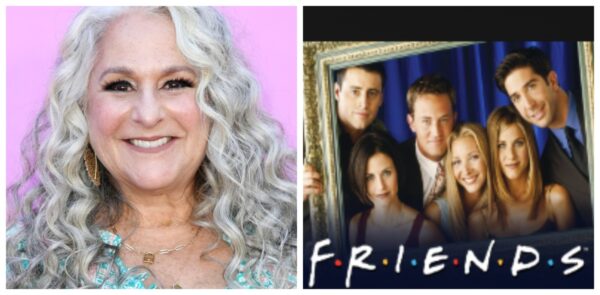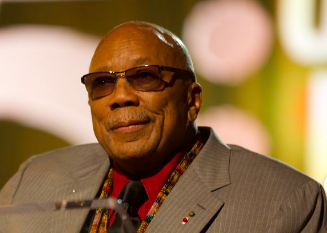A white Hollywood showrunner decided to donate to the Black Studies department at her alma mater because of the lack of racial diversity she experienced on the set of her biggest show. The executive says, in retrospect, she is “embarrassed” that she didn’t realize so few people of color worked on her television series.

Marta Kauffman, co-creator of “Friends,” has pledged $4 million to her alma mater Brandeis University to support its African and African American studies department.
For years, she did not recognize, according to the Los Angeles Times, that her hit show “Friends,” which aired from 1994 to 2004, was being heavily scrutinized because it was based in New York but had very few Black and brown faces featured on it.
Out of the ten years the show was on, Lauren Tom, Gabrielle Union, Craig Robinson, and Aisha Tyler (who had the longest stint with 9 episodes and substantial dialogue) were the few Black stars to be minimally featured on the urban set.
Some cast members were aware of the shortsightedness of the show’s casting. Cast member David Schwimmer, who played Ross, said in 2020 that he believed the show’s lack of diversity and cultural representation was “just wrong.” He added that he pushed the writers to script for him to date non-white women.
“I was well aware of the lack of diversity, and I campaigned for years to have Ross date women of color,” he said.
The show centered on a group of white friends who lived out loud in one of the most racially and culturally diverse cities in the world. With a population of 8.4 million people, it is said to have as many as 800 different languages or dialects spoken in the city, reflecting all kinds of people.
According to the most recent U.S. Census, almost a quarter of that population identifies as Black, while only 31 percent have stated they are “white alone” without any Hispanic or Latino ancestry.
The backlash was fierce during the show’s run, still, with the success the series experienced, Kauffman says she was clueless.
One instance of cultural tone-deafness that may have annoyed Kauffman was the insistence that “Friends” was a whitewashed version of Queen Latifah’s hit show, “Living Single,” a show on Fox from 1993 to 1998.
During an interview with “The Late Late Show with James Corden,” Latifah said that after their show came out and was a hit, Warren Littlefield, who was president of NBC, was asked if he could have any of the then-new shows on television for his network which would it be, and he named the sitcom.
She recalled, “He said ‘Living Single.’ That was in the newspaper and then next thing you know here comes ‘Friends.’”
Fans picked up on it as early as 1995. Allan Jonson of the Chicago Tribune said, “Before ‘Friends’ became the runaway hit it is, there was already a show about six young urban professionals hanging out together and toiling away in New York City: ‘Living Single.’”
Kauffman never addressed any similarities between her show and the Fox hit, nor has the Littlefield comment been verified.
Still, she said critique “was difficult and frustrating,” particularly to hear people complain about diversity in a story she wanted to tell from her perspective.
She regrets that she had that feeling almost 20 years later and wants to fix the oversight for the next generation.
Kauffman believes she suffered from internalized systemic racism, and the civil unrest of 2020 (specifically the murder of George Floyd) helped her grow to that awareness.
“I’ve learned a lot in the last 20 years. Admitting and accepting guilt is not easy. It’s painful looking at yourself in the mirror,” she confessed. “I’m embarrassed that I didn’t know better 25 years ago.”
“It was after what happened to George Floyd that I began to wrestle with my having bought into systemic racism in ways I was never aware of,” Kauffman revealed. “That was really the moment that I began to examine the ways I had participated. I knew then I needed to course-correct.”
The multi-million gift to the Boston institution will be an endowment to set up the Marta F. Kauffman ’78 Professorship in African and African American Studies. It will support a distinguished scholar who has invested a significant amount of study to the history and culture of people from the African diaspora and help the school recruit more scholars and teachers with a concentrated expertise in Black studies. Money will also be used for students to expand in this space.
Since announcing the news, Kauffman says people have applauded her effort.
“I’ve gotten a flood of emails and texts and posts that have been nothing but supportive,” she continued. “I’ve gotten a lot of ‘It’s about time.’ Not in a mean way. It’s just people acknowledging it was long overdue.”




